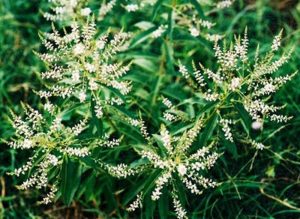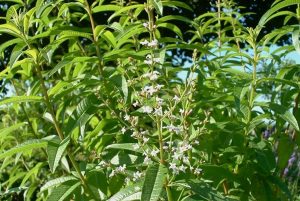Lippia Citriodora


Lippia citriodora, of the Verbanaceae family, is a plant which, if its leaves are rubbed, gives off an intense lemon smell. It is also known by the names of limoncina, odorous verbena. It is a shrub, which can reach a height of two and a half meters, thanks to its stem, which when young is green and flexible, which gives it an almost prostrate posture, but when it ages it becomes woody and allows it to rise from the ground in a shrubby way.
TERRAIN
It’s a plant that doesn’t tolerate low temperatures and it always wants the sun to heat it. A drained, soft and light soil, made up of peat topsoil and pumice is a good sub layer to cultivate it. Don’t forget to add a bit of nitrogen or potassium based fertilizer. You can do it mixed to the soil already, but it’s best if it’s added with water.
FLORA AND FRUIT
In summer, at the tips of the stems, ear inflorenscenses appear, where whitish purple flowers are inserted, sometimes completely purple, with a tube shape. The capitulum is bilabiate with the superior lip that has two lobes, while the inferior one is triffid. The fruit is a dry drupe with two galleries, that contain the small blackish seeds.
USE AND HEALTH PROPERTIES
Lippia has various properties and many uses, let’s see some of them: it is widely used in the preparation of relaxing and digestive herbal teas. Its lemon flavor, sweet but not sour like citrus, gives it a very welcome and refined taste. It is often used to make a liqueur. Or it is fraudulently added to limoncello to correct its lemony taste. The essential oil is indicated to reduce stress and mental tiredness. Just place a few drops in a perfumed bath or place the open container in the shower (so that the heat makes it evaporate) and you will immediately be pervaded by a pleasant sensation of lightness and rest. Its use in the kitchen is now widespread. Used to flavor oil or vinegar, it is sometimes used in ice cream or jellies. The request from the industry was surprising, which yields its characteristic fragrance to make perfumes and soaps, but also the oil itself to extract single compounds (limonene and citral above all) to be used in other compositions such as creams, shower gels and shampoos.
